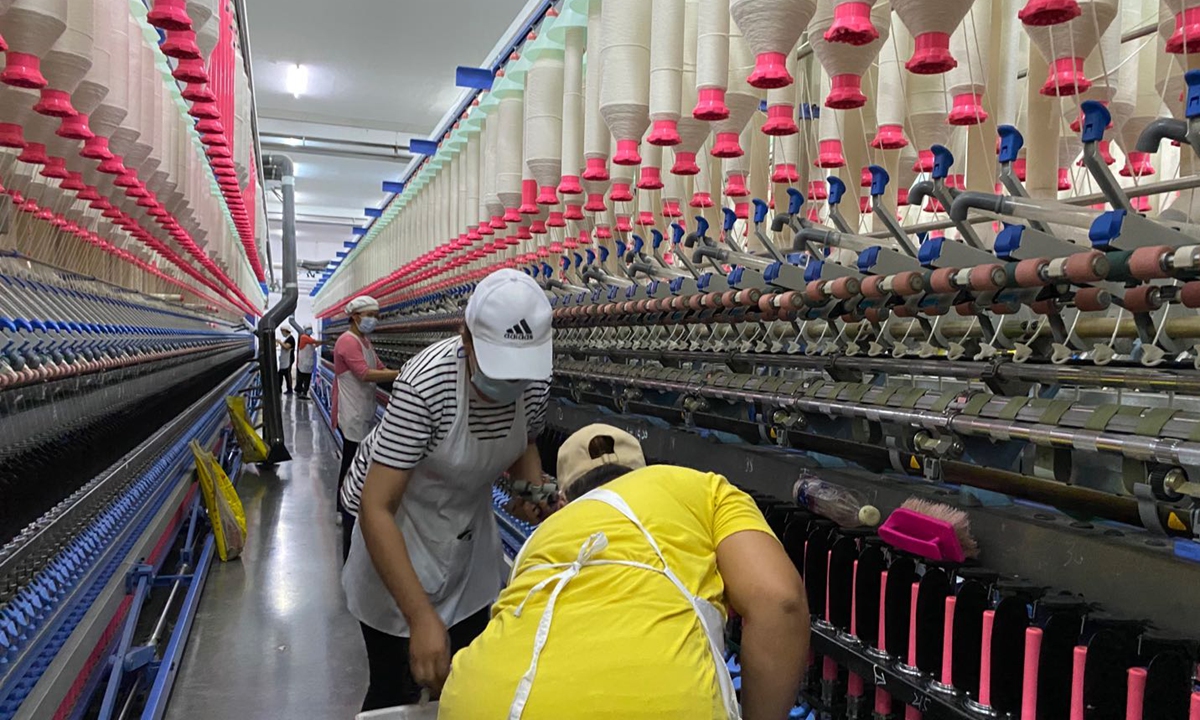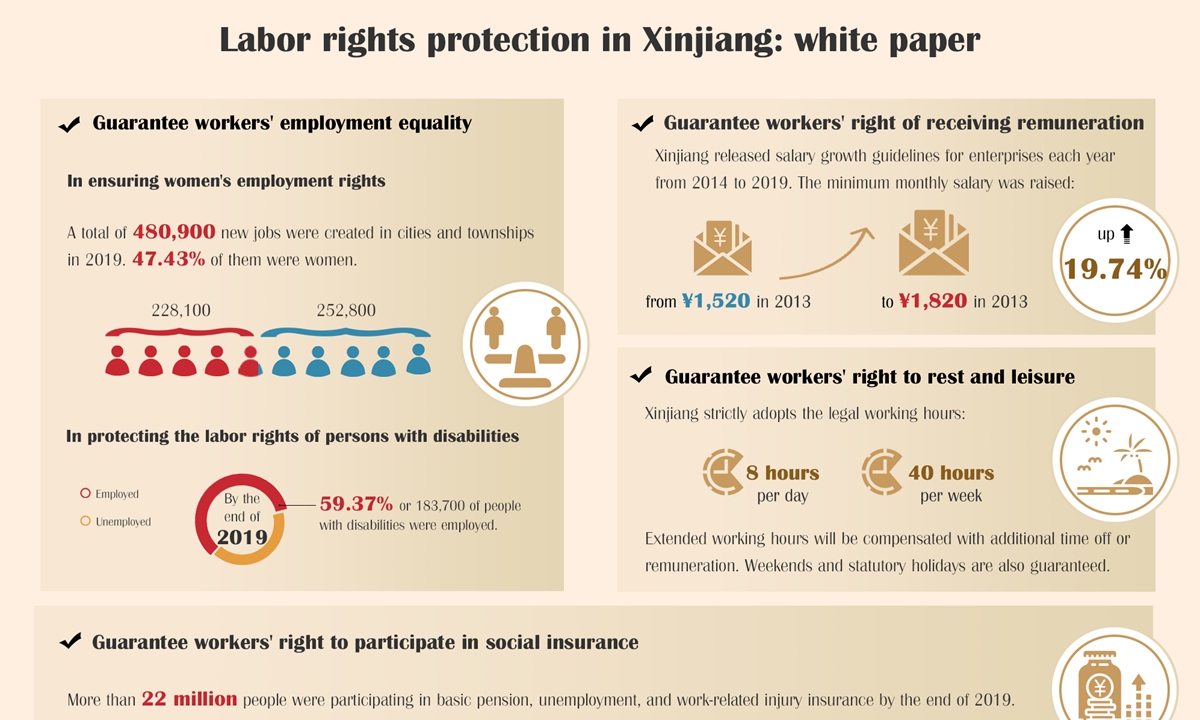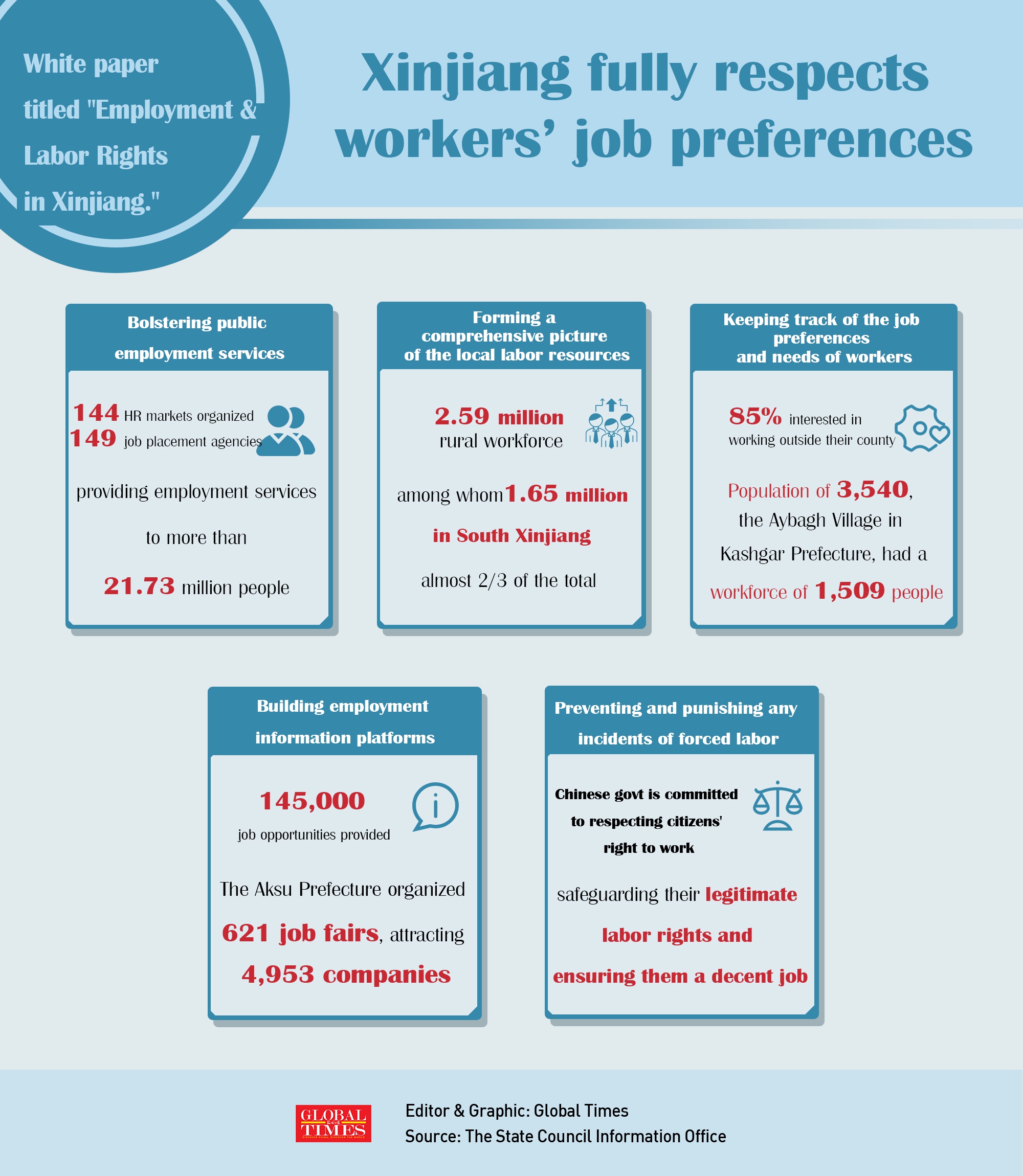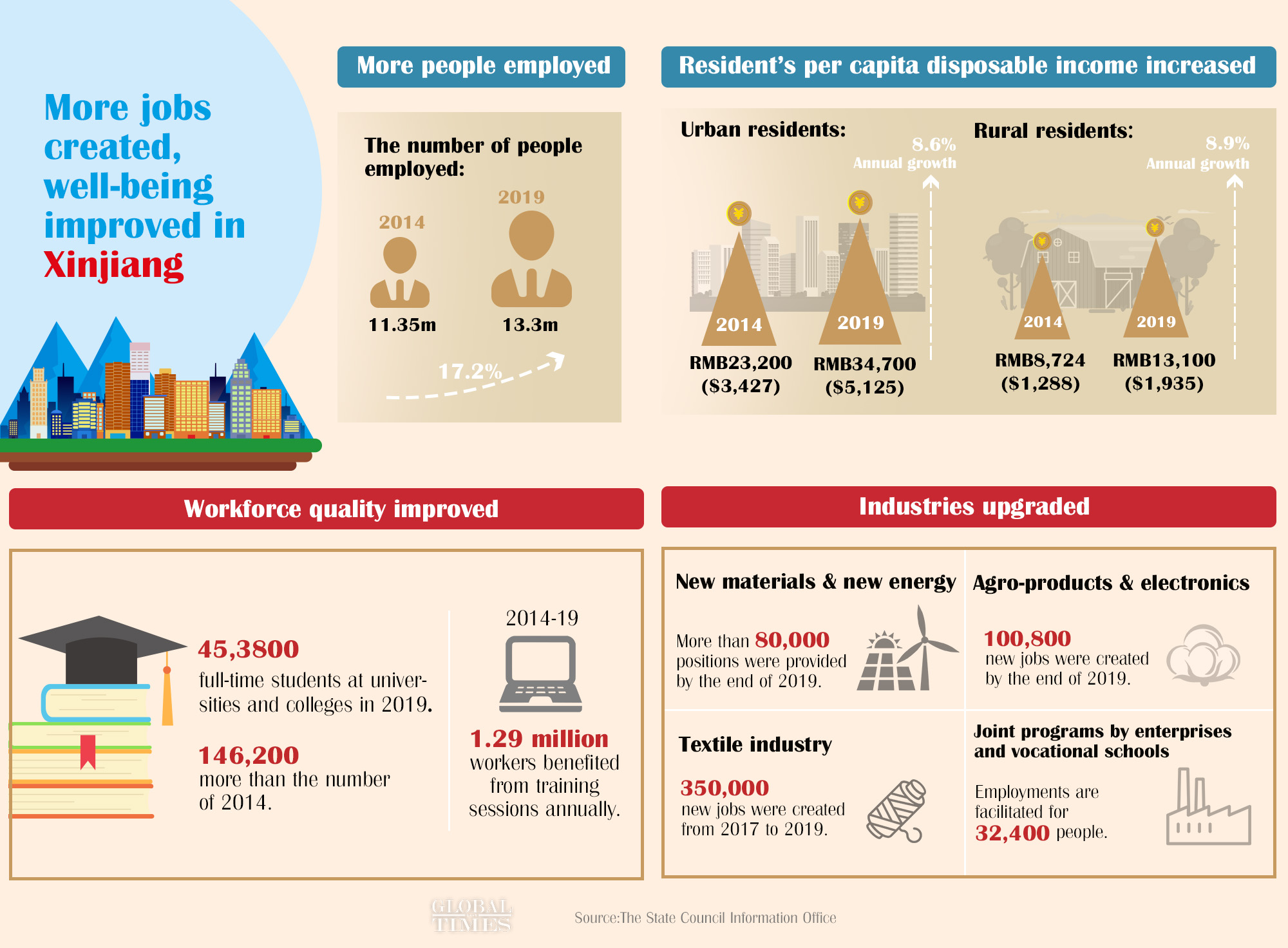
Uygur residents work at a textile factory in Yuli county, Northwest China's Xinjiang Uygur Autonomous Region.
Xinjiang implements a proactive employment policy, protects lawful labor rights and interests of people of all ethnic groups, and strives to provide decent work and a better life for people of all ethnic groups, said a white paper released by the Information Office of the State Council on employment and labor rights in Northwest China's Xinjiang Uygur Autonomous Region on Thursday.
This is the seventh white paper released by the office on Xinjiang. Previous documents covered topics such as historical issues, vocational education and training in Xinjiang, the fight against terrorism and extremism, and human rights developments in the region.
The white paper, entitled Employment and Labor Rights in Xinjiang, explains the proactive employment policies in the region, the changes brought to local residents by increasing employment, and how governments at all levels protect workers' human rights. It also contains a response to some Western media outlets' slandering so-called forced labor in Xinjiang.
It begins by introducing the background of Xinjiang's environment, saying that for historical and natural reasons, Xinjiang has long lagged behind other parts of China in development. The four prefectures in southern Xinjiang in particular have poor natural environments, weak economic foundations and a serious lack of jobs. These prefectures have been identified as areas of extreme poverty.
Haunted by terrorism, separatism and religious extremism, many residents in southern Xinjiang resist learning the standard spoken and written Chinese language, reject modern sciences, and refuse to improve their vocational skills, economic conditions, and the ability to better their own lives. Some local people suffer from poor education and employability, low employment rates and incomes, and they have fallen into long-term poverty, according to the white paper.
Xinjiang has vigorously implemented employment projects, enhanced vocational training, and expanded employment channels and capacity, especially since the 18th National Congress of the Communist Party of China in 2012.
Thanks to these efforts, from 2014 to 2019, the total number of people employed in Xinjiang rose from 11.35 million to 13.3 million, an increase of 17.2 percent. The average annual increase in urban employment was more than 471,200 people (148,000 in southern Xinjiang, accounting for 31.4 percent); and the average annual relocation of surplus rural labor was more than 2.76 million people, of whom nearly 1.68 million, or over 60 percent, were in southern Xinjiang, said the white paper.

Labor rights protection in Xinjiang: white paper Infographic: GT
Despite these achievements Xinjiang have made in adding jobs and raising local residents' incomes, some Western media and anti-China forces have hyped so-called forced labor issues, with slander such as claims that Xinjiang is "forcing" people of ethnic groups to work in textile industries or in other places outside Xinjiang, and they have called for companies outside China to shun relations with Xinjiang.
The white paper refuted the accusations of forced labor, saying that China applies international labor and human rights standards to effectively safeguard workers' rights. Governments of all levels in the Xinjiang region have made efforts to expand employment channels, organize vocational training and provide relevant services. All these are voluntary actions made based on individuals' own choices.
Residents in Xinjiang reached by the Global Times said that thanks to the convenience offered by local governments, they can have better jobs and enjoy better lives.
Zulpya Memet, 25, has been working for a carpet-making plant for two years in Youkurixitaqi village in the Kizilsu Kizgiz Autonomous Prefecture in southern Xinjiang. She used to be a housewife but had to work outside the home as the family has heavy financial burdens. She has to earn money to support her parents, a younger sister and a disabled brother.
Her monthly salary increased from 1,100 yuan ($163) at the beginning to 2,500 yuan, and she also had time to take care of the family as the plant is near her house.
Zulpya told the Global Times that her family's lives have improved since she got the job. She bought a TV for the family and a golden necklace for her mother.
Aside from getting jobs near their villages, many residents in Xinjiang are working in other places in the region or outside Xinjiang to earn more money. Alim Emudul, 26, is now working in the forestry park in Karamay. Previously, he was a wheat farmer in Kashi and could only earn around 5,000 yuan per year.
In April 2018, he decided to venture outside the village, and got a chance to work in the park. "The first day I came to the city, I ate rice pilaf. It was so delicious," Alim recalled.
He cherished his new opportunities. Besides gaining technical skills, he has also worked very hard to learn Putonghua. Meanwhile, he has also served as a good example for other young people in his hometown, and many of them followed him to the city to shake off poverty through diligent work.
"Now, I am a team leader with 30 members," Alim told the Global Times, proudly. "I can earn 3,000 yuan per month."

Infographic: GT
According to the white paper, from 2014 to 2019, Xinjiang provided jobs for 334,300 urban residents having difficulty finding work, and ensured that zero-employment households found jobs within 24 hours once they were identified.
The region also takes measures to protect workers' rights, including guaranteeing their right to remuneration, to rest and leisure, and to occupational safety. It also guarantees their freedom of religion and the right to use their own spoken and written languages.
"The Thursday white paper fully displays the Xinjiang region's work on alleviating poverty, promoting local residents' vocational skills, increasing employment and improving people's livelihoods in recent decades," Zhu Ying, a deputy director of the National Human Rights Education and Training Base of Southwest University of Political Science and Law, told the Global Times on Thursday.
Zhu said that the white paper also offers accurate data on employment and tells individuals' stories on how their lives have been changed by getting a job. All these factors debunked some Western media and anti-China forces' slander of "forced labor."
"Can all the residents in Xinjiang be 'forced' to have a better life, an increasing income and more vocational skills?" Zhu asked.
The white paper also shows that China's efforts to improve its people's livelihood are no different across the nation, Zhu said.

Infographic: GT



